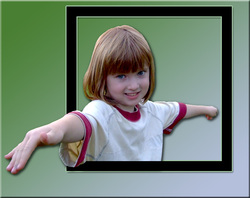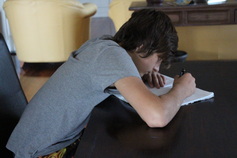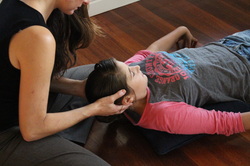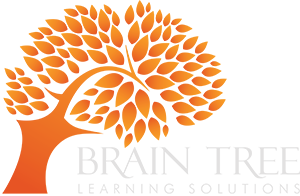Primitive Reflexes and Neuro Developmental Delay
 Primitive reflexes are sometimes called survival reflexes and play an important part in the development of the nervous system. The development of the nervous system starts from conception, then develops in a regular sequence and this sequence is the same for all humans regardless of race or culture. The primitive reflexes are controlled from the brain stem. The brain stem is the first part of brain up from the spinal cord.
Primitive reflexes are sometimes called survival reflexes and play an important part in the development of the nervous system. The development of the nervous system starts from conception, then develops in a regular sequence and this sequence is the same for all humans regardless of race or culture. The primitive reflexes are controlled from the brain stem. The brain stem is the first part of brain up from the spinal cord.
Each reflex plays an important part in the necessary growth of the foetus or young child. Each reflex develops in a sequential order and prepares the way for the next stage of development. They start developing in the womb and continue in the first six months of life and then are broken up by the time the child is 6 months old. If the primitive reflexes do not break up they will be retained and will cause imaturities within the nervous system of the child as they grow. This will be seen as neuro developmental delay and can affect the child in many ways including their emotional development, social maturity and academic progress.
If the problem persists to adult hood the symptoms include agraphobia, excessive reaction to stimulii, anxiety, panic attacks, difficulty making decisions and poor self esteem. If you recognise and or are concerned about any of the listed areas then it is worth discussing them with a trained Neuro Developmental Therapist
Primitive reflexes when examined help us to determine the maturity of the central nervous system. Primitive reflexes should not be present in a child after 6 months of age and postural reflexes should be fully developed in a child by 3 years of age. If the primitive reflexes are present and the postural reflexes underdeveloped it is a sign of Neuro Developmental Delay. BRAIN TREE LEARNING SOLUTIONS uses the primitive and postural reflex profile as an important tool for understanding the maturity of the childs central nervous system to be able to implement an effective intervention program.
WHAT WE SEE IN THE CLASS ROOM AND THE POSIBLE UNDERLYING PHYSICAL PROBLEM
| Observation |
Possible Underlying Physical Problems |
| Sloppy hand writing |
Vestibluar Dysfunction and swapping of leading eye.
Retained primitive reflexes and imature postual reflexes |
| Short attention span |
Moro reflex retained |
Hand writing slopes
from one side to other |
Changing of eye dominance |
| Poor Muscle Tone |
TLR Reflex, STNR Reflex and Head Righting Reflexes |
Writing Difficulties or
writing rapidly deteriorates |
ATNR Reflex, STNR Reflex |
Extremely slow copying
from Blackboard |
Poor re-establishment of binocular vision
TLR reflex and lack of HRR reflexes. |
| Immature Pen grip |
ATNR and o |
| Slumping head while writing |
STNR Reflex , TLR Reflex, Head Righting Reflexes |


 INPP (The Institue of Neuro-Pysiological Psychology) www.inpp.org.uk was established in 1975 by Dr Peter Blythe. It is a drug free and non invasive treatment which can help children overcome specific learning difficulties, coordination difficulties and behavioural difficulties. It is designed to inhibit the primitive reflexes and mature the postural reflexes. In doing so the child will experience changes in the ease in which they can do things with their bodies that will make formal learning more natural and less frustrating.
INPP (The Institue of Neuro-Pysiological Psychology) www.inpp.org.uk was established in 1975 by Dr Peter Blythe. It is a drug free and non invasive treatment which can help children overcome specific learning difficulties, coordination difficulties and behavioural difficulties. It is designed to inhibit the primitive reflexes and mature the postural reflexes. In doing so the child will experience changes in the ease in which they can do things with their bodies that will make formal learning more natural and less frustrating.

 Primitive reflexes are sometimes called survival reflexes and play an important part in the development of the nervous system. The development of the nervous system starts from conception, then develops in a regular sequence and this sequence is the same for all humans regardless of race or culture. The primitive reflexes are controlled from the brain stem. The brain stem is the first part of brain up from the spinal cord.
Primitive reflexes are sometimes called survival reflexes and play an important part in the development of the nervous system. The development of the nervous system starts from conception, then develops in a regular sequence and this sequence is the same for all humans regardless of race or culture. The primitive reflexes are controlled from the brain stem. The brain stem is the first part of brain up from the spinal cord.

